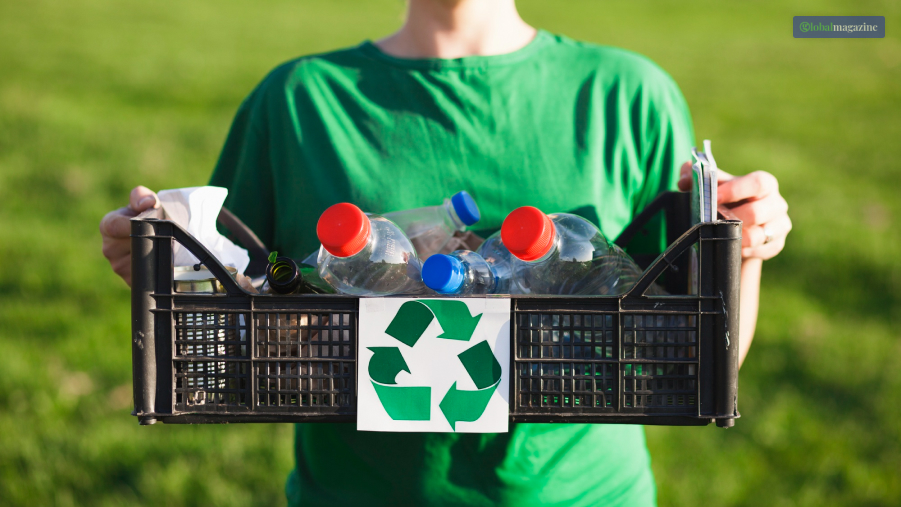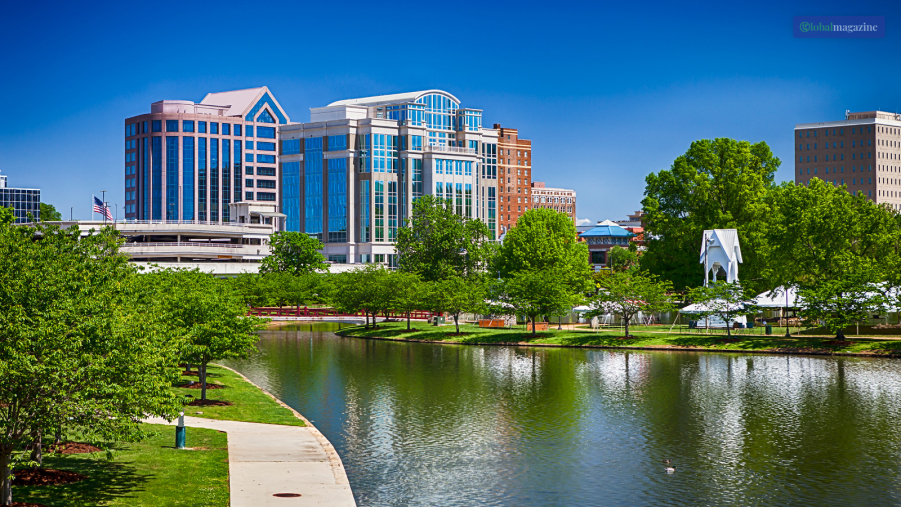Recycling Initiatives Across America: Spotlight on Birmingham

Recycling and adequate waste management have become essential components of developing more sustainable communities in the United States.
Although most cities fail to implement successful programs, some exceptions exist, such as Birmingham, Alabama, etc. All of the names are leaders in new recycling projects.
As cities around the nation seek to enhance their environmental policies, Birmingham’s efforts provide a blueprint for success.
Those interested in how this city manages its waste while promoting sustainability can get insights into Birmingham’s eco-friendly waste disposal. Highlighting the challenges and facts about recycling and solutions in urban waste management.
Birmingham’s Waste Management as Progressive Leadership

Birmingham’s fast track towards sustainability began with being reborn into a better waste management system. Therefore, to ensure the environment, the city has implemented a comprehensive plan of multiple approaches to waste treatment. Or understand the true essence of the facts about recycling.
To this end, awareness of recycling among the residents and businesses is also a priority for this push.
1. Programs and Initiatives
The city has rolled out many programs relating to sensitizing the public on the usefulness and facts of recycling. Subsequently, the required infrastructure is put forth to serve this purpose to the desirable level of service delivery.
Accessible and intuitive recycling receptacles placed in every part of the town center have been a significant strategy for this initiative.
2. Recycling Centers Taking Necessary Actions
Recycling centers are set up in a way that helps identify grades. In this case, these are plastics, metals, paper, and glass. They are processed locally, dramatically reducing the carbon footprint because of unnecessary transportation of the recyclable materials.
Moreover, the city has applied cutting-edge technology to improve the system’s functionality and outcomes, making it more effective and efficient.
This comprises the separation of the materials using highly accurate automatic machines. This goes a long way toward reducing the amount of waste in landfills.
Inventions Playing a Role in Birmingham’s Green Recycling Recovery
Besides Birmingham’s infrastructure improvements, the city has even supported some innovative options to improve its recycling system.
An example of the upgrades is integrating an intelligent waste management system with internet technology to increase efficiency in recycling. This not only reduces fuel consumption but also helps reduce greenhouse gas emissions.
Also, Birmingham has worked with local organizations, including restaurants, hotels, and offices, to create individualized recycling plans for each specific business.
This sort of teamwork increases the volume of recycling collected and creates sustainability at the local business community level. This gives rise to organizational sustainability practices in the local business community and simultaneously creates a safe and healthy environment.
By involving corporate bodies in the city’s recycling efforts, Birmingham attempts a widened scope, leading to increased comprehensiveness and efficiency.
The city also emphasizes the role of the community in the chance of recycling success. To facilitate this, Birmingham management organizes workshops and seminars regularly to educate residents that recycling is among the best green options for the local environment.
Besides, many such events are accompanied by practical activities that allow participants to experience the benefits of waste disposal immediately.
Comparing Recycling Initiatives In Birmingham With Other U.S States

Alabama is the number one name on the list of cleanest cities in America. Birmingham is not even halfway there, although it has been trying its best to cope with recycling initiatives.
Let’s have a look at other U.S. states and how they deal with waste management and recycling:
Montgomery
Montgomery is one of those rare U.S. cities that has been implementing a new waste management model. Under this model, they send all household waste and the remaining to a central facility.
These facilities are rich in labor and machines that sort them out based on their recycling ability. Further, they also pull out recyclables like paper to turn them into fuel products and throw plastics to make the former. Very recently, the facility also started accepting trash without wasting any of it.
Huntsville

Just like waste management in Birmingham, Huntsville also makes an effort to tweak its recycling practices.
18-gallon waste bins are now replaced with rolling carts weighing upto 95-galloon that also have lids. However, the collection of recyclables will be conducted only once a month.
The bigger cart prevents material from spilling or blowing out of the bins. Further, they also assist the SWDA to leverage automated trucks and collect all the cans so that the workers don’t have to do the same.
Tuscaloosa
Thirdly, Tuscaloosa has been recycling its waste based on how severe it smells. It is Alabama’s fifth-largest city and provides robust recycling facilities to the collectors.
It all begins with sorting the materials, categorizing them according to metals, plastics, and papers, and then loading them into different trucks. The process is labor-intensive, which is why a lot of cities have stopped practicing it.
Ashley Chamber runs recycling programs. These programs are devoted solely to making people aware of the different waste types. Every different waste has a different way of handling and management.
Mobile

Last but not least, Alabama’s largest city, Mobile, offers no municipal curbside recycling. The city sends no trucks to collect waste products.
But then, how is the city so clean?
Mobile residents are eligible to pay their personal recycling connections via a private industry, also known as Earth Resources. The latter provides curbside collection not only in the city but also in its outskirts.
Furthermore, Earth Resources also leverages curb sorting to maintain the cleanliness of the material. Several recycling programs in the city do not accept glass and only limited plastics.
Daphne, Gulf Shores, and Fairhope are some other coastal towns in the U.S.A. that offer curbside recycling. However, in Baldwin County, you will find a number of recycling drop-off facilities.
Challenges and Future Directions
The mentioned achievements are proof that urban recycling is successful. However, Birmingham still faces several issues that must be dealt with if it wants to contribute more to improving the recycling system.
A major crisis is overcoming the passiveness and disputes of some residents and business people against waste collection operations because they see them as inconvenient or unnecessary.
To fight climate change, the city is trying to do more to stress the long-term advantages of our environment and economy by encouraging recycling.
Forward-looking Birmingham will evaluate its future recycling programs through the utilization of diverse and sustainable materials management strategies, like composting organic waste and the implementation of zero-waste policies.
These measures will, in fact, restore the local ecology and, as a result, contribute to widespread climate change mitigation.
Conclusion
The achievement of Birmingham in recycling is a beautiful experiment featuring the facts about recycling in municipal waste management, which other cities across America can incorporate to create a solution for waste.
By employing high-tech innovation, civic involvement, and a mission-based strategic plan, Birmingham will take the lead in environmental sustainability. Understanding its strategy in Birmingham, other cities wanting to improve can enrich their recycling options and teach them what it takes to be sustainable beyond mere declaration.
Birmingham, being the leader in inaugurating and maintaining sustainable programs, is a striking example, among others, and proof of the success of industrial cities despite the past.
Learn More About:

























